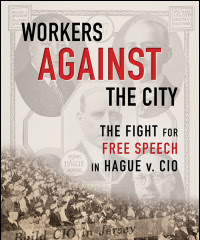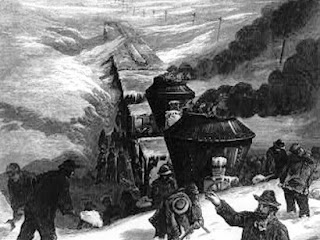Donald W. Rogers, a lecturer in the Department of History at Central Connecticut State University, has published Workers against the City: The Fight for Free Speech in Hague v. CIO (University of Illinois Press, 2020):
The 1939 U.S. Supreme Court decision Hague v. CIO constitutionalized the fundamental right of Americans, including labor organizers, to assemble and speak in public places. Donald W. Rogers eschews the prevailing view of the case as simply a morality play pitting Jersey City, New Jersey, political boss Frank Hague against the Committee for Industrial Organization (CIO) and allied civil libertarians. Instead, he utilizes untapped archives and evidence to review Hague's story from street and media battles to district court and Supreme Court deliberations, illuminating trial proceedings from both worker and city perspectives for the first time. His analysis reveals how transformative New Deal-era developments in municipal governance, union organizing, labor politics and constitutional law dominated the conflict, and how assembly and speech rights changed according to judges' reaction to this historical situation.
Clear-eyed and comprehensive, Workers against the City revises the view of a milestone case that continues to affect Americans' constitutional rights today.
Here is an endorsement:
"Skillfully blending the histories of American civil liberties, organized labor, and urban politics, Rogers shows us how a complex set of forces has shaped and limited the rights of modern Americans to assemble and speak their minds in public."--James J. Connolly, author of An Elusive Unity: Urban Democracy and Machine Politics in Industrializing America–Dan Ernst








